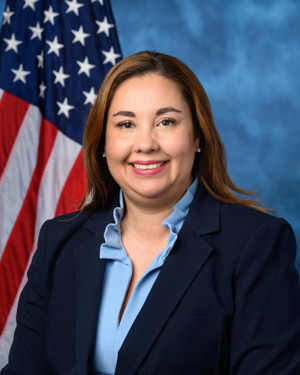Chris Pawelski was feeling the sting of year after year of crop failures — usually the result of bad weather. Then his father died of stage four renal cancer. He found himself caring for his mother, who was diagnosed with dementia. All the while, his debt grew.
Years of personal and economic challenges built up for the New York onion farmer, who struggled with “dark thoughts” amid the constant stress.
“All those things just collided,” Pawelski told Agri-Pulse. “It was a very dark period. I just saw no way out.”
A pivotal moment for Pawelski came when he reached out to New York FarmNet, a Cornell-based program offering emotional and financial counseling to farmers in the state.
A few phone and Zoom conversations led to a visit from two FarmNet advisers — one specializing in finances and the other in mental and emotional well-being — who listened to his story, talked him through his financial options and encouraged him to visit a therapist.
“They were invaluable, with their advice and their empathy, in helping us navigate through some very difficult times,” Pawelski said.
The visit was a turning point for Pawelski, the subject of a recent documentary called Muckville. He got a therapist following the visit and said his mental well-being is currently in “a better place” than it was, despite the emergence of some additional health and economic challenges (he was forced to dump much of his onion crop at the height of the COVID-19 pandemic in 2020, for example).
FarmNet is one program in a patchwork of initiatives across the U.S. meant to help farmers manage the stress that comes with their lives and occupations. States, universities, and private organizations — some utilizing federal funds — have created hotlines and programs providing resources and support geared specifically for rural populations.
Members of Congress are weighing whether to maintain federal support for these local and regional efforts through the Farm and Ranch Stress Assistance Network, which provides grants to help fund rural mental health hotlines, websites, training programs and support groups. In addition, they are considering the creation of new resources, such as a nationwide crisis hotline for producers and farmworkers.
Farmers are believed to experience depression at rates seven or eight times higher than the general population, and anxiety at rates 4.5 times higher, according to a fact sheet from the North Central Farm and Ranch Stress Assistance Center. Josie Rudolphi, an assistant professor at the University of Illinois-Champaign, said male farmers are estimated to die by suicide at rates one to three times higher than nonfarm males.
The unpredictability that comes with farming is one factor that can influence the well-being of producers. Crop success is contingent on timing and moisture, and the prices farmers receive for their products are dependent on demand and other external factors.
“It’s an occupation where there is so much out of an individual’s control,” Rudolphi told Agri-Pulse.
 Chuck Strand, Rural Minds
Chuck Strand, Rural MindsAddressing mental health in rural communities comes with its share of challenges, according to Chuck Strand, executive director of the nonprofit Rural Minds. Shortages of mental health professionals can force rural citizens to travel long distances seeking care, and telehealth may not be an option for those who lack internet access. The stigma associated with seeking mental health care can be another barrier, Strand said.
“If you’re growing up in a rural area or on a farm with the mindset that you don’t ask for help from anybody, you pull yourself up by your bootstraps, it can be especially challenging to confront a mental health challenge,” Strand told Agri-Pulse.
Lawmakers authorized FRSAN in the 2018 farm bill with the hopes of reducing some of these barriers.
USDA’s National Institute of Food and Agriculture has so far allotted $4.8 million to each of four regional centers. These centers — based in the Northeast, South, West and North Central regions of the U.S. — provide grants for agricultural behavioral health telephone helplines and websites, training programs and support groups. Funds can also be used to disseminate mental health materials and information.
Utah State University, for example, has used funds to create a podcast focused on farm suicide prevention. NY FarmNet has received funding to provide producers with financial and personal consulting. Money has gone to the Iowa Concern Hotline, a 24/7 service hosted by Iowa State University Extension that provides legal, financial, stress and disaster information.
Rudolphi, who helps operate the North Central Farm and Ranch Stress Assistance Network, said one FRSAN project directed by the University of Illinois provides farmers with vouchers for free counseling sessions with partnering mental health providers. Over 1,340 hours worth of vouchers were redeemed by farmers and farm family members between September 2020 and 2023, Rudolphi said.
“What we hear is that it costs too much, they’re not sure if their insurance is going to take it,” Rudolphi said of farmer concerns about professional behavioral health services. “So we’re reducing barriers associated with affordability.”
Washington State University created a similar program earlier this year, according to Skagit County Extension Director Donald McMoran. Few farmers have made use of the vouchers so far, however, despite WSU extension staff giving them out like “hot cakes,” McMoran said.
Cut through the clutter! We deliver the news you need to stay informed about farm, food and rural issues. Sign up for a FREE month of Agri-Pulse here.
“We’re breaking down those walls slowly,” McMoran said of farmer hesitation to seek help from a therapist. “But it hasn’t been without its challenges.”
Senate Ag Committee Chairwoman Debbie Stabenow, D-Mich., and ranking member John Boozman, R-Ark., have both thrown their support behind a bill to reauthorize FRSAN.
The Farmers First Act — co-sponsored by Sens. Tammy Baldwin, D-Wis., Michael Bennet, D-Colo., Jerry Moran, R-Kan., Jon Tester, D-Mont., Tina Smith, D-Minn, Susan Collins, R-Maine, and Joni Ernst, R-Iowa — would also increase funding for the program to $15 million per year for fiscal years 2023 to 2028.
Sen. Kirsten Gillibrand, D-N.Y., and Reps. Yadira Caraveo, D-Colo., and Tony Gonzalez, R-Texas, have proposed the creation of a new 24/7 hotline to provide producers, farmworkers, and their families with suicide crisis intervention, mental health support, and agriculture-related referral services. USDA would oversee the hotline.
A federal suicide and crisis lifeline already exists for any member of the general public that dials “988,” but Caraveo told Agri-Pulse farmers may be reluctant to seek help from operators unfamiliar with the pressures they face.
 Rep. Yadira Caraveo, D-Colo.
Rep. Yadira Caraveo, D-Colo.
“If you have somebody that doesn’t understand the ag community, I think that it can turn people off to whatever help they’re trying to seek out,” Caraveo said. “Through this, we’re really trying to make sure we have people who understand what agricultural families are going through.”
The hotline, according to a press release, would be staffed by operators trained to provide “culturally and linguistically appropriate support” for farmers and farmworkers. It would offer 24-hour follow up to callers, as well as referral services tailored to their needs.
“This bill shouldn’t even be in question,” said Jeff Ditzenberger, a Wisconsin farmer and the founder of TUGS, a nonprofit focused on addressing mental health stigma. “This should just be, it should be done.”
Ditzenberger said farmers speak a “different language” than much of the general public, which general therapists may not understand. Strand agreed, adding that not all advice offered by therapists to the general public may work for farmers. Producers, for instance, may be unable to take a day off for their mental health during certain seasons.
The National Agricultural Crisis Hotline Act would also allow for coordination with the 988 Suicide and Crisis Hotline, which could potentially allow the general crisis line to direct farmers to the agriculture-focused one, Caraveo said.
Caraveo, a House Ag Committee member, wants to get the National Agricultural Crisis Hotline Act into the farm bill, along with a slate of other bills focused on rural health, like one that would allow rural health care facilities increased access to certain USDA loans and another that reauthorizes a grant program for telemedicine projects.
She said House Ag Chairman Glenn "GH" Thompson, R-Pa., who previously held jobs as a therapist and nursing home administrator, “really understands what the health pressures are in rural areas.”
“I think there’s interest in getting them into the bill,” she said of the proposals.
For more news, go to Agri-Pulse.com.
Editor’s note: The Suicide and Crisis lifeline is available 24/7 and can be reached by dialing 988. An online chat option is also available.


